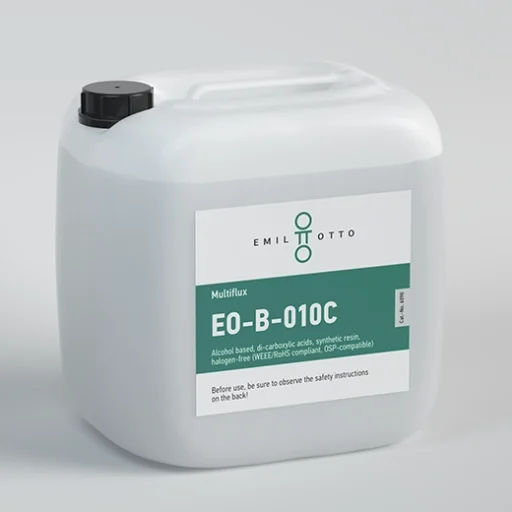Wave, selective, manual and repair soldering, dip soldering, strand tinning
Alcohol-based flux
Di-carboxylic acids, synthetic resin complex, halide-free (WEEE/RoHS-compliant) [OSP-compatible]
Type ISO-9454: 1231 // DIN EN 61190-1-1: L0 (REL0)

| Appearance: | colourless, light yellowish, transparent liquid |
| Hazardous goods: | Yes |
| Solids content: | 4.0 wt.-% |
| Acid value: | 27 - 32 mg KOH/g |
| Halogenide-free: | Yes |
| Resinous: | Yes |
| Available as a concentrate: | No |
| Density at 20 °C: | 0.796 (+/- 0.003) g/ml |
| Flash point: | 12 °C |
| Durability: | 12 months |
This flux was developed for wave, selective and hand soldering processes as well as strand tinning. It can be applied using all standard application methods (except foaming). The solids content is 4 wt.-%. This flux is very versatile and OSP-compatible. Good results are achieved with manual, wave and selective soldering. The generally applicable rule that the amount of flux applied should always be as low as possible also applies to this product.
Spray fluxes: If dosing is possible, first set the flux quantity to 20 - 30 ml/min, observe the even flux distribution on the PCB (test with thermal paper if necessary) and then correct to the optimum quantity.
Preheating: A preheating temperature of 80 - 110 °C is recommended for "simple" PCBs and 100 - 130 °C for "more complex" PCBs. It can be used in both leaded and lead-free solder systems.